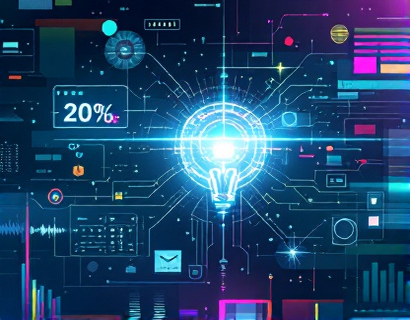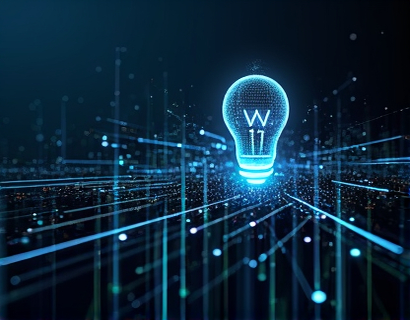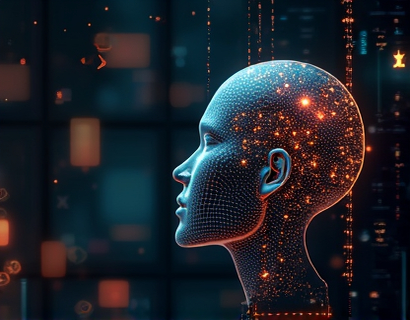Harnessing AI and Crypto: Elevating Digital Engagement with Next-Gen Solutions
The intersection of artificial intelligence and cryptocurrency is a rapidly evolving space, offering unprecedented opportunities for enhancing digital engagement and driving growth. This article delves into the latest advancements and insights for tech enthusiasts and professionals, exploring how the synergy between AI and crypto can revolutionize the digital landscape.
The integration of AI and cryptocurrency is not just a technological curiosity but a strategic move that can significantly elevate user experiences and operational efficiencies. AI's ability to process vast amounts of data, learn from patterns, and make predictions is complemented by cryptocurrency's decentralized and secure nature. Together, they form a powerful duo that can transform various aspects of digital engagement.
Understanding the Basics
To fully appreciate the potential of AI and crypto, it's essential to understand the fundamentals of both technologies. Artificial intelligence encompasses a range of techniques and algorithms designed to simulate human intelligence in machines. These include machine learning, natural language processing, and computer vision. AI systems can automate complex tasks, provide personalized recommendations, and enhance decision-making processes.
Cryptocurrency, on the other hand, is a digital or virtual currency that uses cryptography for security. The most well-known cryptocurrency is Bitcoin, but there are thousands of others, each with unique features and use cases. Blockchain, the underlying technology of cryptocurrency, ensures transparency, immutability, and decentralization, making it an ideal foundation for various applications beyond currency.
AI in Cryptocurrency: Enhancing Security and Efficiency
One of the most significant applications of AI in the cryptocurrency space is in enhancing security. Cryptocurrency exchanges and wallets are prime targets for cyberattacks due to the high value of digital assets. AI algorithms can detect and prevent fraudulent activities by analyzing patterns and anomalies in transaction data. Machine learning models can identify suspicious behavior in real-time, reducing the risk of hacks and thefts.
AI also improves the efficiency of cryptocurrency transactions. Smart contracts, self-executing contracts with the terms directly written into code, can automate and enforce agreements without the need for intermediaries. AI can optimize the execution of these contracts, ensuring they are executed under the most favorable conditions, reducing costs and increasing speed.
Personalization and User Experience
AI-driven personalization is a game-changer for digital engagement. In the cryptocurrency space, users have diverse needs and preferences. AI can analyze user data to provide tailored recommendations, from investment strategies to product offerings. For instance, a cryptocurrency trading platform can use AI to analyze a user's trading history and market trends to suggest optimal buying and selling times.
Moreover, AI-powered chatbots and virtual assistants can enhance user experience by providing 24/7 support, answering queries, and guiding users through complex processes. These AI-driven tools can understand natural language, making interactions more intuitive and efficient. This level of personalization not only improves user satisfaction but also increases engagement and loyalty.
Decentralized Finance (DeFi) and AI
Decentralized Finance, or DeFi, is a rapidly growing sector within the cryptocurrency ecosystem. It aims to create financial systems that are open, transparent, and accessible to everyone, leveraging blockchain technology. AI plays a crucial role in DeFi by optimizing various financial operations.
AI algorithms can analyze market data to predict price movements, helping users make informed investment decisions. In lending and borrowing platforms, AI can assess creditworthiness and set interest rates dynamically, ensuring fair and efficient transactions. Additionally, AI can detect and mitigate risks associated with smart contracts, such as reentrancy attacks, by continuously monitoring and updating the code.
Data Analytics and Market Insights
Data analytics is another area where AI and cryptocurrency intersect to provide profound insights. The cryptocurrency market generates an enormous amount of data, from transaction records to social media sentiment. AI can process and analyze this data to uncover trends, patterns, and insights that are not immediately visible.
For investors and traders, AI-driven analytics can provide real-time market insights, helping them make data-driven decisions. For developers and businesses, these insights can inform product development and marketing strategies. Understanding user behavior and market dynamics through AI analytics can lead to more effective and targeted approaches, enhancing overall digital engagement.
Cross-Chain Interoperability and AI
Interoperability between different blockchain networks is a critical challenge in the cryptocurrency ecosystem. AI can play a pivotal role in solving this issue by facilitating seamless communication and data exchange between disparate systems. AI algorithms can translate and standardize data formats, ensuring compatibility and smooth interactions.
Cross-chain solutions enable users to transfer assets and execute transactions across multiple blockchains, expanding the possibilities for decentralized applications and services. AI can optimize these processes, reducing latency and improving security. This level of interoperability not only enhances user experience but also fosters innovation and collaboration within the crypto community.
Future Prospects and Challenges
The future of AI and cryptocurrency is promising, with numerous potential applications and innovations on the horizon. However, there are also challenges that need to be addressed. Regulatory uncertainties, scalability issues, and the need for standardization are among the key hurdles. Ensuring compliance with regulations while maintaining the decentralized ethos of cryptocurrency is a delicate balance.
From a technological standpoint, improving the efficiency and scalability of blockchain networks is crucial. AI can contribute to these efforts by optimizing consensus mechanisms and enhancing network performance. Additionally, ongoing research in AI ethics and security will be essential to build trust and adoption.
Conclusion
The convergence of AI and cryptocurrency represents a transformative force in the digital world. By leveraging the strengths of both technologies, we can create more secure, efficient, and personalized digital experiences. As the landscape continues to evolve, staying informed and adaptable will be key for tech enthusiasts and professionals alike. Embracing the potential of AI and crypto can lead to groundbreaking solutions that redefine how we engage and interact in the digital realm.











































